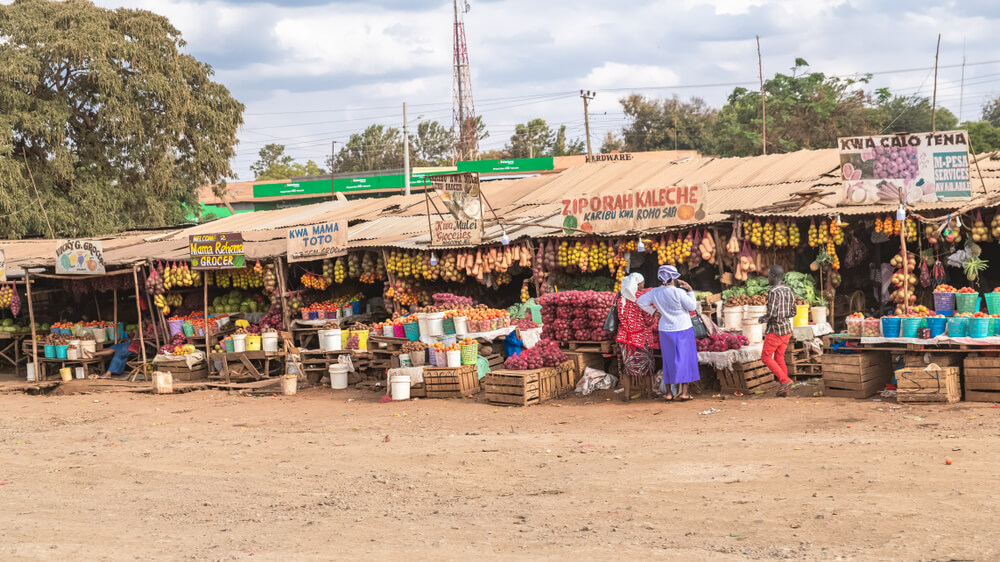Greetings, Agents of Impact!
Featured: ImpactAlpha Original
Twiga Foods bets on informal retailers as the key to African food security and business growth. Twiga Foods has for seven years been calling attention to the fragility of Kenya’s informal food retailers, on which a majority of Kenyan households depend for food. Twiga’s solution: tech-enabled warehousing and delivery services that shuttle food products from farmers to retailers, helping shopkeepers manage inventory and costs. The global pandemic buoyed Twiga’s prospects by exposing weaknesses in the global food supply chain and highlighting the importance of informal and small businesses to emerging market economies. Global investors have poured capital into agri-food startups and technology providers helping mitigate businesses’ vulnerabilities to shocks. Goldman Sachs led Twiga’s $23.8 million funding round in 2019, one of Africa’s largest Series B rounds. Twiga has also secured funding from impact investors Blue Haven Initiative, Alpha Mundi and others. Now the company is back in the market to raise additional equity in the hopes of fueling a pan-African expansion. “We are solving a complex problem, and the only way to address this is by raising sufficient capital,” Twiga’s Peter Njonjo tells ImpactAlpha correspondent John Njiraini in Nairobi.
When Twiga’s founders launched the business in 2014, they sought to address the closely connected issues of food security and smallholder farmer livelihoods. Urban African households spend as much as 60% of their disposable income on food. Food inflation and pressure on wages is making basic nutrition unaffordable, Njonjo says. Twiga has retained its focus on food security by supporting informal retailers, but has shifted its supply focus from smallholder farmers to mid-sized and commercial farms. “It is important to choose the type of problem to solve. We have opted to focus on the right problem, which is food security,” Njonjo adds. He says the efficiency of Twiga’s network has helped reduce prices for food staples, like bananas, by as much as 15%. “This is a big achievement in a market where you have continuous inflation. Our impact is that we have played a key role in reducing the costs of food items.”
Keep reading, “Twiga Foods bets on informal retailers as the key to African food security and business growth,” by John Njiraini in ImpactAlpha.
Dealflow: Alt-Protein
Australia’s v2Food raises $108 million for global expansion. The plant-based protein producer makes sausage and ground beef alternatives. Investors in its latest round include Belgian impact investor Astanor Ventures (see, “Astanor Ventures raises $325 million for sustainable food and ag-tech”). ABC World Asia, Temasek, Horizon Ventures and Main Sequence also participated in the Series B round, which valued v2Food at $500 million. The financing will be used to expand to Asia and introduce plant-based pork and other products.
- Low-carbon transition. More than three-quarters of global greenhouse gas emissions can be mitigated within 15 years by a handful of key technologies, including precision fermentation and cellular agriculture, according to research from think tank RethinkX.
- Onward.
WEPOWER fund will back diverse founders to build community wealth in North St. Louis. The Black woman-led Elevate/Elevar Capital fund is nearing its $1.5 million target after a $500,000 commitment from Living Cities (see ImpactAlpha’s series with Living Cities, “Investing in Racial Equity”). The fund will write checks of $50,000 to $200,000 for up to 20 Black and Latinx entrepreneurs in North St. Louis communities that have experienced decades of disinvestment. The aim is to help business owners become pillars within their communities, WEPOWER’s Yoni Blumberg told ImpactAlpha. A percentage of the fund’s returns will be managed by community representatives. San Diego-based Mission Driven Finance will provide fund administration services.
- Flexible finance. The fund will provide flexible, revenue-based financing to share risk with entrepreneurs and enable them to retain ownership of their companies. Founders will pay between 2% and 10% of their revenues after a repayment holiday of three to 12 months, up to a cap of 1.5 times of the amount of the loan. The fund will invest without requiring collateral or minimum credit scores.
- Share this post.
Dealflow overflow. Other investment news crossing our desks:
- Mexican edtech venture Crehana raises $70 million to reskill and upskill employees for Latin American companies.
- Black haircare brand Afrocenchix secures $1.2 million from Google for Startups’ $5 million Black Founders Fund.
- FiscalNote acquires Singapore’s ESG and climate data management software firm Equilibrium to help companies meet sustainability goals.
- India’s Onsurity scores $16 million to help small businesses provide health insurance benefits for their employees.
Signals: Market Sizing
IFC puts a rosy spin on a tough year for impact fundraising. Investments designed and measured for positive impact reached $636 billion last year, up from $505 billion in 2019, reports the International Finance Corp. The IFC used the increase in cumulative assets to conclude that “impact investing has seen a boost in popularity during the COVID-19 pandemic.” But as in other recent surveys, the pattern in the underlying data is murkier. The IFC reports, for example, that 2020 saw less than half as many new impact funds as the previous year, and that fundraising for developed markets, emerging markets and global funds tumbled from $39.8 billion in 2019 to $14.2 billion in 2020. That more sober reality comports with anecdotal reports of last year’s tough fundraising environment. In a separate review, the Global Sustainable Investing Alliance reported a decrease in impact investing assets last year compared with 2018, but cautioned the numbers aren’t directly comparable (see, “The numbers may be fuzzy, but the trends are clear when it comes to sustainable investment”).
- Impact management and measurement. If indeed there has been a decrease in impact investments, at least part of the decline may be a salutary effect of increased rigor and transparency. At least 135 funds from 33 countries have signed onto the Operating Principles for Impact Management, 97 have published disclosure statements, and 64 have provided summaries of their independent verifications (see, “What we learned from 30 impact verifications,” by BlueMark’s Christina Leijonhufvud). Said RockCreek’s Afsaneh Beschloss, “The maturity of the impact investing market in 2020 is an encouraging signal for investors.”
- Share this post.
Agents of Impact: Follow the Talent
Mission Investors Exchange appoints Nicholas Almeida, ex- of San Jose’s mayor’s office, as chief operating officer… US SIF’s Harry Langer is named director of research at the Forum for Sustainable and Responsible Investment… Mercy Corps Ventures is looking for a venture studio lead in Portland… The Federal Reserve Bank of New York is recruiting a director of community investments… ImpactAssets seeks a business development associate in the San Francisco Bay Area… Provenance Capital Group is hiring a director of operations in San Francisco.
Villgro Innovations Foundation is looking for impact professionals to join its social enterprise incubator in India… Philip Bateman of Australia’s Bravo Charlie has released a white paper, “Proactive Communication for Change Makers”… The Soil Health Institute is hosting “Enriching Soil, Enhancing Life,” Aug. 11-12… The Global Steering Group for Impact Investment’s online summit will take place Oct. 6-8. ImpactAlpha subscribers receive 10% off with code 10%_GSG.
Thank you for your impact.
–Aug. 10, 2021











